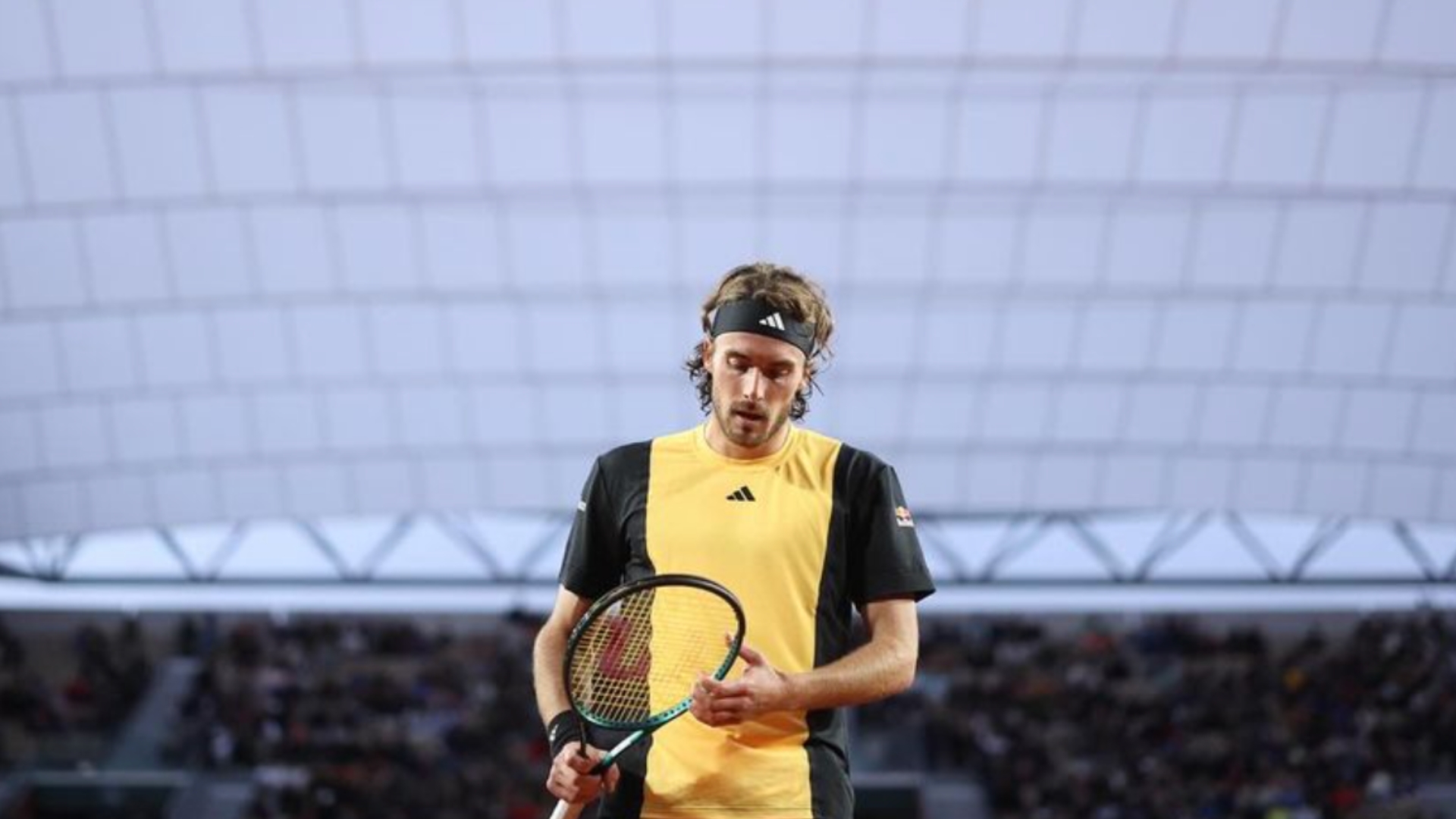According to Stefanos Tsitsipas, two-week ATP Masters 1000 competitions cause a decline in quality because athletes do not have time off for recuperation or for the training required to maintain their form over an extended season.
Five of the nine Masters tournaments now take place over two weeks. Moreover, the ATP announced earlier this year that seven of the nine events would now take place over 12 days in the 2025 season. This decision did not sit well with the players.
Tsitsipas said: “The two-week Masters 1000s have turned into a drag. The quality has definitely dropped. Players aren’t getting the recovery or training time they need with constant matches and no space for the intense work off the court.”
The athlete added: “It’s ironic that the ATP Tour committed to this format without knowing if it could actually improve the schedule, but the quality likewise. Paris got it right, done in a week. Exciting and easy to follow. Just how it’s supposed to be… If the goal was to ease the calendar, extending every 1000 (Masters) to two weeks is a backwards move. Sometimes, it feels like they’re fixing what wasn’t broken.”
Like Tsitsipas, four-time Grand Slam champion Carlos Alcaraz has also criticized ATP’s decision, claiming that the competitive tennis schedule makes it hard to maintain motivation throughout the year and raises the possibility of injury.
Alcaraz stated: “It is difficult. Sometimes I didn’t feel motivated at all… The calendar’s so tight. A lot of tournaments … not as (many) days off as I want.”
The two-week Masters events, according to Alexander Zverev, are ideal for players ranked between 50 and 100 in the world because they provide them the opportunity to compete in a main-draw event, but the timetable is not optimal for players in the top ten.
Zverev admitted: “Yes, you do get told you have a day in between (matches), you don’t have to play every day. At the end of the day that’s not resting… Resting is when you’re spending time at home, when you’re sleeping in your own bed, maybe with your family, maybe with your dogs, maybe with your kids… That’s what resting is.”
He added: “If you’re at a different place, that’s not resting. If you’re going deep in events… if you’re trying to make semi-finals or finals of every event, you’re just away a lot longer and you have to work a lot more. It’s as simple as that.”
Source: CNA

